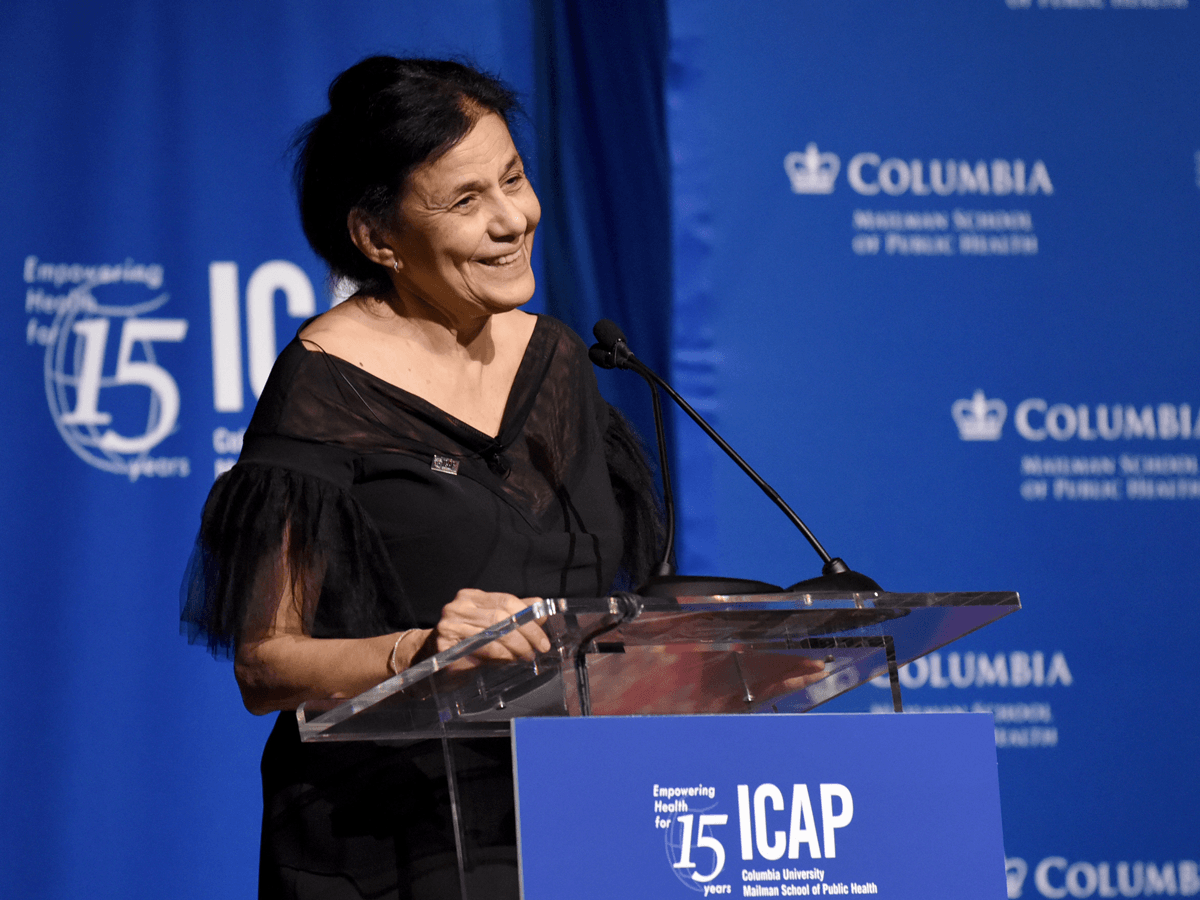The African Academy of Sciences (AAS) inducted ICAP founder and global director Wafaa El-Sadr, MD, MPH, MPA, as a Fellow at its 11th General Assembly Meeting in Pretoria, South Africa.
According to AAS, “Fellows are elected from among active African scientists residing in Africa or elsewhere and who have attained the highest international standards and/or who have made significant contributions to the development and application of science, technology and innovation in Africa.”
“Exemplifying selfless dedication and commitment to lifting the burden of the HIV epidemic among the poor and vulnerable in Africa, Dr. El-Sadr is being deservedly recognized by the African Academy of Sciences for her scientific accomplishments,” remarked Professor Quarraisha Abdool Karim, Fellow AAS and Associate Scientific Director of CAPRISA, a research center based in Durban, South Africa. “My heartiest congratulations to Dr. El-Sadr; it is an honor and privilege to have someone of her caliber inducted as an AAS Fellow.”
A total of 120 Fellows and Associate Fellows elected in 2016, 2017, and 2018 were inducted this year, along with 72 distinguished senior and early career scientists from across the globe who joined as AAS Affiliates. Ten Honorary Fellows were lauded for their significant contributions to the objectives of the Academy. A full listing of inductees is available in the conference program on the AAS website.
“It is truly an honor to join this group of distinguished AAS Fellows,” Dr. El-Sadr said. “This Academy is distinguished by bringing together individuals from diverse disciplines all engaged in contributing to the growth and development of the great African continent.”
The 11th General Assembly was organized in collaboration with South Africa’s Department of Science and Technology with the theme, “Our history, impact, and future,” this event created a platform for scientists, policymakers, and the private sector to engage in conversations on how to mobilize support for science, technology, and innovation to build long-term capacity for infrastructure and human resources.








